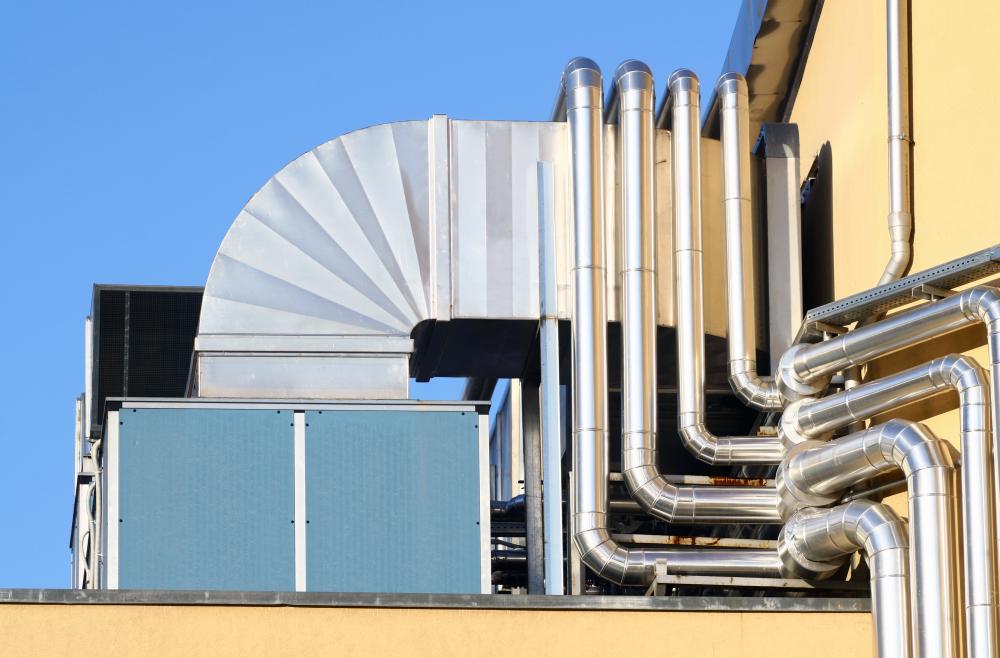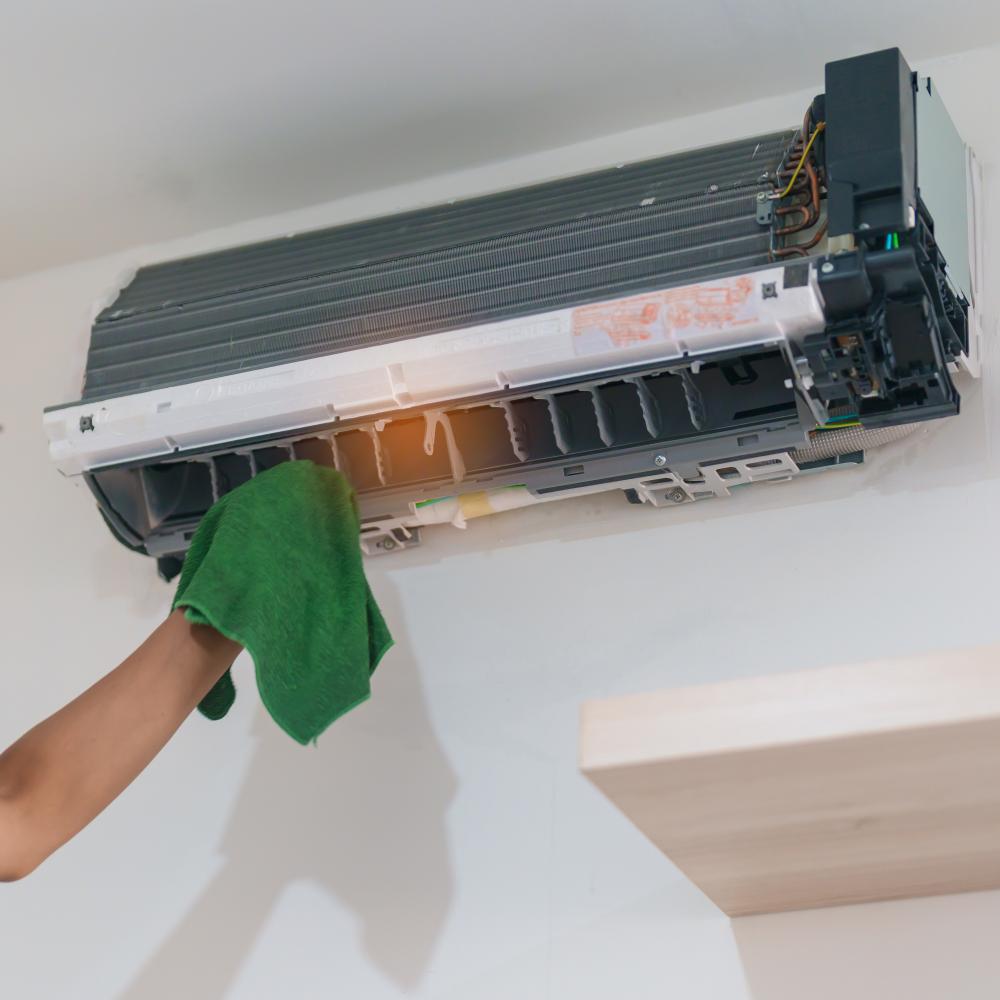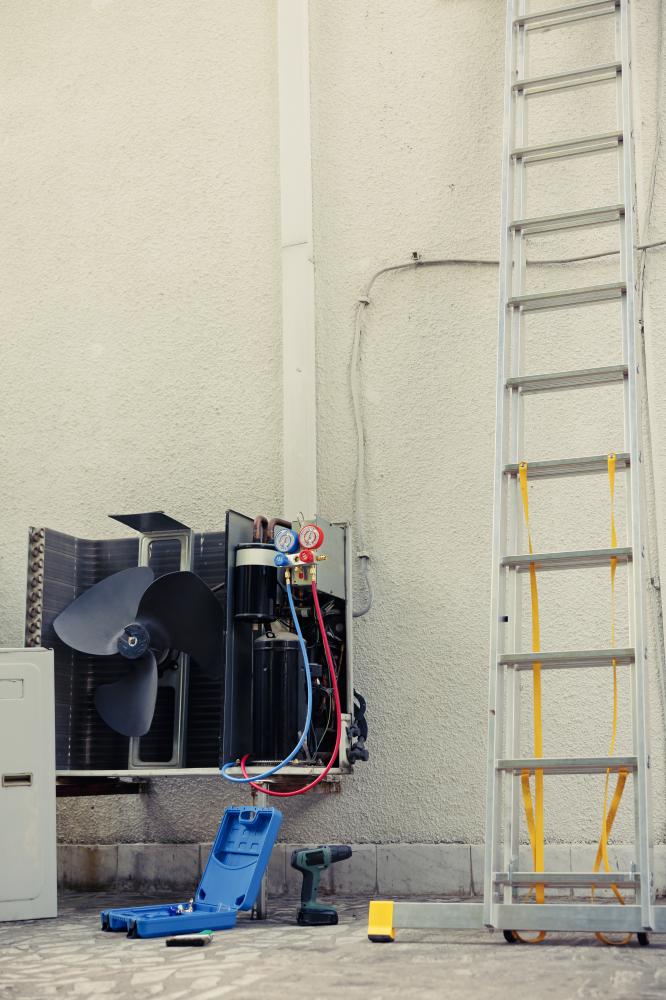
Introducing the World of HVAC Systems
Having spent over two decades in the HVAC industry, I've witnessed firsthand the magic that HVAC systems can weave. From maintaining comfort in homes to ensuring climate control in vast industrial spaces, the functionality of an HVAC system is indispensable. When discussing an HVAC System San Jose, it's crucial to consider the specific climatic needs of the area, which range from mild winters to warm summer spells.
Many homeowners often overlook the significance of regular maintenance until their furnace decides to give up on a chilly November night or their air conditioner refuses to cooperate in the midst of a heatwave. To avoid these scenarios, understanding the components and workings of your HVAC system is essential.
What Makes Up an HVAC System?
Central to any HVAC system are three main components: the furnace, air conditioner, and the ductwork that transmits treated air. Each part plays a pivotal role in ensuring seamless operation:
- Furnace: Responsible for producing heat, typically powered by gas or electricity.
- Air Conditioner: Cools the air using a refrigerant cycle.
- Ductwork: Distributes heated or cooled air throughout the premises.
In the context of an HVAC System San Jose, these components must be optimized for energy efficiency due to California's stringent energy regulations. Homeowners should consider energy-efficient models or retrofit solutions to enhance system performance while reducing carbon footprint.
How to Select the Best HVAC System San Jose Residents Trust
Choosing an HVAC System San Jose families can rely on requires more than just picking the first system you come across. Here's a step-by-step approach to make an informed decision:
- Assess the size and layout of your space to determine the right system capacity.
- Research energy efficiency ratings and aim for a higher SEER (Seasonal Energy Efficiency Ratio).
- Seek recommendations from local professionals for systems specifically tailored to San Jose's climate.
- Budget wisely, but be prepared to invest in quality, as upfront costs can lead to long-term savings.
In my experience, consulting with a local expert can be the most valuable step. These professionals understand the unique demands of an HVAC System San Jose environments impose, ensuring your unit is both effective and compliant with regulations.
Addressing Common HVAC Issues in San Jose
Even the best-designed systems can falter under unexpected circumstances. Here are some challenges specifically observed with HVAC systems in San Jose:
With the dry summer heat, many systems face the dilemma of humidity regulation. Adding a humidifier to your existing setup can remedy this. Additionally, as wildfire season approaches, issues with air quality often arise, necessitating the integration of advanced air filters. Proactively swapping out dirty filters for new ones is a small step that can vastly improve indoor air quality.
Another concern is energy inefficiency, often caused by outdated systems. I've seen homeowners save up to 40% on energy bills by upgrading to more efficient models, especially those equipped with smart technology for precise climate control.
What Qualifies as a HVAC System San Jose Emergency?
An HVAC emergency can arise from a sudden breakdown during extreme weather, potential gas leaks, or complete system failure. Address these with urgency to prevent discomfort and safety risks.
Step one involves shutting off the system to prevent further damage or hazard. Next, contact a professional technician who understands the intricacies of an HVAC System San Jose requires. While waiting for assistance, use fans or natural ventilation to manage indoor temperatures.
San Jose's unique climate demands specific attention to system durability and efficiency. By taking proactive measures and scheduling regular maintenance, homeowners can avoid most of these emergencies, ensuring comfort throughout the year.

The Importance of HVAC Cleaning San Jose
What Are the Benefits of HVAC Cleaning?
- Improved Air Quality: Eliminates allergens and pollutants.
- Enhanced System Efficiency: Reduces energy consumption.
- Prolonged Equipment Lifespan: Reduces wear and tear.
How Often Should HVAC Systems Be Cleaned?
Steps Involved in a Professional HVAC Cleaning
- Inspection and Evaluation: Identify areas that need attention.
- Ductwork Cleaning: Remove dust and debris from ducts.
- Component Cleaning: Fans, motors, and grills are cleaned.
- Filter Change: Replace old filters to improve air quality.
- Final Testing: Ensure the system operates efficiently post-clean.
Navigating HVAC Cleaning San Jose Services
Commercial HVAC Services: An Overview for San Jose
Commercial HVAC San Jose is a thriving sector, relevant to a city venturing towards sustainability and energy-efficient solutions. Whether you're managing office buildings, retail spaces, or industrial facilities, robust HVAC systems are vital. They ensure not only comfort but also regulatory compliance and energy efficiency in all commercial establishments.
Our agency, HVAC Alliance Expert, thrives on delivering strategic marketing insights to HVAC businesses, offering services that range from air conditioning installations to complex energy management systems. We see the nuances of the market trends in San Jose, influencing how commercial HVAC services adapt to the city's evolving needs.
Commercial HVAC San Jose businesses are adapting to newer regulatory standards with innovative solutions. The focus isn't merely on maintaining temperatures; it is about integrating smart systems that communicate with building management software. This integration helps businesses optimize energy consumption and minimize operational costs, a necessity in the bustling tech hub of San Jose.
Why Choose Commercial HVAC Solutions in San Jose?
Choosing commercial HVAC solutions in San Jose offers key advantages, particularly due to the region's tech-oriented environment. With our two decades of marketing expertise, we understand that businesses here demand cutting-edge HVAC solutions that match the city's innovative spirit. Efficient systems reduce downtime and operational costs, providing businesses with a competitive edge.
From enhancing indoor air quality to managing large-scale ventilation systems, HVAC solutions in San Jose are tailored to meet the specific needs of diverse industries. Our experience shows that businesses opting for local expertise benefit from providers who comprehend the regional climate and specific business demands.
Furthermore, selecting a local provider ensures faster response times for maintenance and emergency services, critical for operations that cannot afford extended downtimes. The assurance of prompt support is a significant factor influencing decision-makers in the vibrant economic landscape of San Jose.
Energy efficiency is another compelling reason to invest in commercial HVAC solutions. As a city leading in tech innovation and sustainability efforts, San Jose businesses benefit substantially from HVAC systems designed to maximize energy savings and contribute to a greener footprint.
What Are the Benefits of Choosing Local Contractors?
Local contractors bring a wealth of advantages to the table, providing not just technical expertise but also a deep understanding of regional needs. A contractor specializing in commercial HVAC San Jose operations is familiar with city-specific regulations and weather patterns. This familiarity allows them to recommend the most efficient systems tailored to your business requirements.
Choosing local contractors enhances your business's agility. They offer quick response times for maintenance and repair, which is crucial in preventing disruption in business operations. They're also more accessible for any consultations, allowing businesses to make informed decisions quickly.
- Localized Knowledge: Understanding microclimatic conditions unique to San Jose.
- Regulatory Compliance: Keeping systems within local and state guidelines.
- Rapid Response: Ensuring quick service turnaround times.
- Cost-Effectiveness: Helping reduce operational costs through tailored solutions.
Frequently Asked Questions About Commercial HVAC San Jose
What qualifies as essential maintenance for commercial HVAC in San Jose?
Essential maintenance tasks include regular filter replacements, inspecting and cleaning ducts, and calibrating thermostats for optimal efficiency. These tasks ensure that HVAC systems run smoothly, catering to San Jose's unique climate conditions. In turn, they help prevent costly breakdowns and extend the lifespan of your systems.
- Regular filter changes are vital for maintaining air quality.
- Cleaning and inspecting ducts improve energy efficiency.
- System audits ensure your HVAC units operate at peak performance.
How often should commercial HVAC systems be serviced in San Jose?
Commercial HVAC systems should ideally be serviced twice a year, aligning with seasonal transitions. In San Jose's dynamic climate, preparing your systems for temperature shifts ensures optimal performance and helps minimize energy wastage. Regular maintenance not only provides cost savings but also contributes to sustainability goals by reducing your carbon footprint.

How much does it cost to install an HVAC system in San Jose?
Installing an HVAC system in San Jose varies depending on the size of your home, the type of system, and any customizations you might need. Typically, you're looking at a range between $5,000 and $12,000. If you're considering advanced options like smart technology or energy-efficient models, it can be on the higher end. It's important to factor in labor costs, which can be significant given the need for skilled professionals.
Before making a decision, think about your specific needs and long-term savings. Consulting with a local expert who understands San Jose's climate and energy regulations can provide a detailed estimate and help you choose the best option that balances cost and efficiency.
How much should I pay for a new HVAC system?
The price for a new HVAC system can depend on several factors including home size, system efficiency, and your location. On average, homeowners might spend anywhere from $3,000 to $10,000. In San Jose, where energy efficiency is crucial due to regulatory standards, opting for a high-SEER rated unit might cost more initially but save money long-term in energy bills.
Investing in quality upfront often translates to fewer repairs and lower operational costs. If the cost seems high, consider financing options or check for local rebates designed to promote energy-efficient installations. This can make the initial investment more manageable.
How much is a HVAC system for a 2000 sq ft house?
For a 2000 square foot house, you could expect the cost for an HVAC system to fall between $5,000 and $12,500. The specifics depend on the system's efficiency and the complexity of the installation. In San Jose, it's recommended to invest in a system with advanced filtering and climate control to handle the dry, hot summers and sporadic cool nights effectively.
It's wise to consider the long-term operational costs alongside the initial installation cost. Energy-efficient models will be more expensive upfront but can save significantly on energy bills over time. Consulting with a San Jose-based HVAC expert can help tailor the system to your exact needs and ensure compliance with local standards.
How much does an HVAC system cost in California?
The cost of an HVAC system in California can vary, often ranging between $6,000 and $15,000, depending on factors like the size of the house, energy efficiency ratings, and the system's brand. California's push for energy efficiency means that high-efficiency models might be more commonly installed, with upfront costs balanced by long-term savings on utility bills.
Always consider the local climate and any specific needs for your home. In a state like California, where temperatures can vary greatly, having an adaptable and efficient system is important. Speak with professionals to get customized advice and potentially tap into state rebates or financing options that promote energy-efficient installations.
What are the benefits of choosing local contractors for HVAC systems in San Jose?
Choosing local contractors in San Jose for HVAC systems offers several benefits. They have a better understanding of the local climate and regulatory requirements, which ensures your system is both effective and compliant. Local contractors often provide faster service in emergencies and are more available for follow-up consultations.
Working with local experts also supports the community and can result in cost savings through reduced logistics expenses. They might offer insights on rebates or financing options specific to the area, enhancing your system's value. Consider asking about their experiences with similar installations to gauge their expertise and reliability.
What are common misconceptions about HVAC maintenance in San Jose?
A common misconception about HVAC maintenance in San Jose is that it's only necessary when something goes wrong. However, regular maintenance is key to preventing issues and ensuring efficient operation, especially given the area's distinct weather patterns.
Many homeowners also underestimate the impact of air quality linked to their HVAC systems. With San Jose's dry summers and wildfire seasons, integrating high-quality air filters into regular maintenance can significantly improve indoor air quality. Routine checks help prolong your system's life and ensure it's ready for seasonal changes.
How does regular HVAC cleaning contribute to energy efficiency in San Jose?
Regular HVAC cleaning in San Jose is crucial for maintaining energy efficiency. When dust and debris accumulate, they can block airflow, causing the system to work harder and use more energy. Clean systems reduce strain and operate more efficiently, lowering energy bills.
Beyond energy savings, regular cleaning improves indoor air quality, which is especially important during San Jose's notorious wildfire seasons. Routine maintenance, including cleaning, keeps your system running smoothly and aligns with California's stringent energy efficiency goals.
What are the steps involved in professional HVAC cleaning in San Jose?
Professional HVAC cleaning in San Jose typically involves several key steps to ensure that all components are clean and functional. First, technicians inspect and evaluate the system to identify problem areas. Then, they clean the ductwork to remove accumulated dust and debris.
This is followed by thorough cleaning of components such as fans, motors, and grills. Filters are replaced to enhance air quality, and a final test ensures the system operates efficiently. Regular professional cleaning not only extends the system's lifespan but also maximizes its efficiency.
What is the significance of choosing commercial HVAC solutions in San Jose?
Commercial HVAC solutions in San Jose are significant due to the region's tech-driven focus on sustainability and efficiency. They cater to diverse business needs from office buildings to industrial facilities, helping maintain comfort and regulatory compliance.
Choosing local solutions offers advantages of quick service and tailored systems that fit San Jose's specific climate demands. Additionally, many commercial setups now include integrations with smart systems to optimize energy use, which is essential in managing operational costs effectively in a competitive and eco-conscious market.
How often should commercial HVAC systems be serviced in San Jose?
In San Jose, commercial HVAC systems should ideally be serviced twice annually, usually in preparation for summer and winter. Regular maintenance checks help address any issues before they become costly repairs, ensuring systems run efficiently year-round.
The frequent inspections align with the region's climate variations, providing businesses with the reliability they need to minimize downtime. Regular servicing also supports sustainability efforts by optimizing energy consumption and reducing emissions. Engaging with a local provider ensures services are timely and attuned to local conditions.
Resources
- Environmental Protection Agency - The official website of the EPA, providing information on energy efficiency and environmental considerations related to HVAC systems.
- U.S. Department of Energy - The DOE website offers resources on energy-efficient HVAC systems and tips for reducing energy consumption.
- ASHRAE - The American Society of Heating, Refrigerating and Air-Conditioning Engineers provides industry standards and guidelines for HVAC professionals.
- NIOSH - The National Institute for Occupational Safety and Health offers information on indoor air quality and occupational safety related to HVAC systems.
- ENERGY STAR - ENERGY STAR provides resources on energy-efficient products, including HVAC systems, and tips for reducing energy consumption in homes and businesses.



